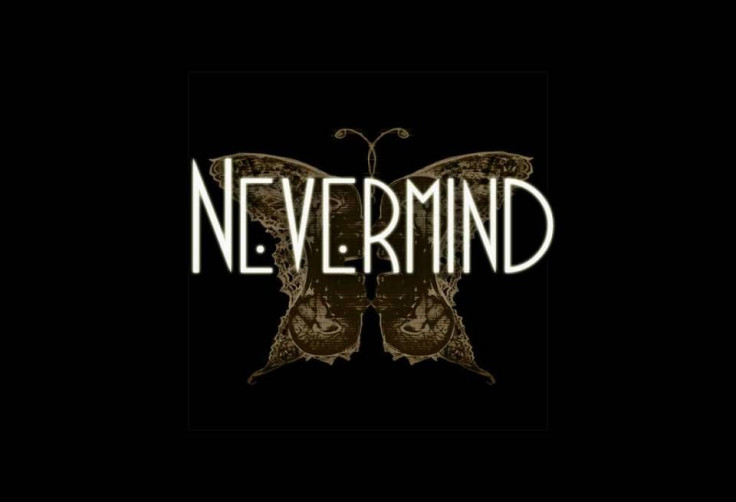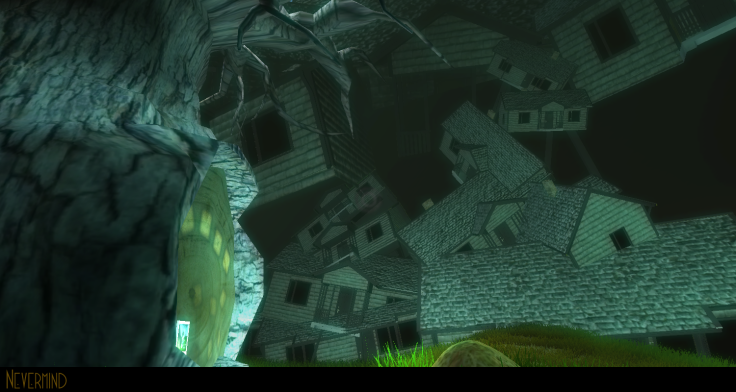'Nevermind' Game Responds To Players' Fear, Currently Being Funded On Kickstarter
The title has two weeks left to go on Kickstarter.

There are scary video games, and then there are scary video games. We’ve all gotten a little freaked out playing “Dead Space” in the dark, but “Nevermind,” a biofeedback-enhanced adventure horror that is currently being funded on Kickstarter, takes fear to a new level. The title uses a biofeedback sensor to monitor your stress levels – and increases the game’s difficulty accordingly.
“'Nevermind’ differs from many other horror games in a few key ways,” the game’s creative director, Erin Reynolds, told IBTimes. “'Nevermind’ was not only designed to entertain and scare players but also created with the intention of giving back to them as well. Every time you get scared or anxious while playing ‘Nevermind,’ it is an opportunity to practice recognizing that fearful or stressful reaction and using stress-management techniques to counter those feelings.”
How does the game achieve this? “'Nevermind’ uniquely uses biofeedback technology to isolate that fear and stress and respond to it in a dynamic and effective way,” Reynolds continued. “The more scared you get playing, the harder it will become. As such, to be successful, you must also be successful at quickly calming yourself in high-anxiety scenarios. The big-picture idea is that these are skills that will prove powerful and beneficial within the game and, most importantly, outside of the game in everyday life.”
In the title, you take on the role of a Neuroprober, a type of physician who uses advanced technology to travel into the minds of psychologically-traumatized victims who haven't been effectively helped by previous, traditional methods of treatment. Your task is to delve into the thought processes of mentally unstable patients - a job that can become disturbing and terrifying.
To track a user’s fear level, the “Nevermind” developers are currently using “off-the-shelf sensor technology (a Garmin Heart Rate strap and an ANT+ USB stick) to gather data about a player’s heart rate.”

“From there, the game is able to calculate Heart Rate Variability (or HRV). HRV is a good indicator of when someone is stressed or scared. Counterintuitively enough, you generally want the distance in-between heart beats to be inconsistent – something like fast, fast, fast, slow, slow, slow. It means that you feel calm but alert. However, when you get scared or stressed, your ‘fight or flight’ system essentially kicks in and your heart beat cadence becomes consistent. This change in heart rate consistency occurs quite quickly and when the game detects that your heart rate cadence has become more consistent, it knows that you’ve started to become stressed out and will respond,” explains Reynolds.
The title currently has two weeks left to go on crowd-funding site Kickstarter. “We needed a much larger campaign to take ‘Nevermind’ to the next level and fully realize our vision for it. Kickstarter is a great platform for these ambitious, larger-scale efforts,” said Reynolds. “It allows us to invite fans and community to become directly involved with the game's development process.”
The developers hope to raise $250,000 in funding. The campaign is currently at $55,400.
“We are completely focused on reaching the goal at this time and with so much excitement around our Kickstarter campaign, we’re confident in our ability to reach our goal,” said Reynolds.
Reynolds and the “Nevermind” team feel that users can take away a lot from the game. “’Nevermind is built to be a fantastic game in and of itself – so I want players to leave having had a wonderful time,” she said, adding, “'Nevermind' at its core was developed with the intent of helping people. By playing Nevermind and practicing stress and fear management skills on the fly, you start to habituate using the relaxation techniques that work the best for you. Not only will they lead to success within the game – they will also serve you very well in real life as well.” She also hopes players will leave the game knowing more about personal psychological trauma and post-traumatic stress disorder. “We hope to be able to humanize it a bit more and build empathy and understanding around these issues.”
The title currently has more than 1,200 backers on Kickstarter. It has also been pre-approved by Valve for an upcoming Steam release.
You can support the game here.
What do you think of "Nevermind"? Leave a comment below or Tweet me!
© Copyright IBTimes 2025. All rights reserved.




















